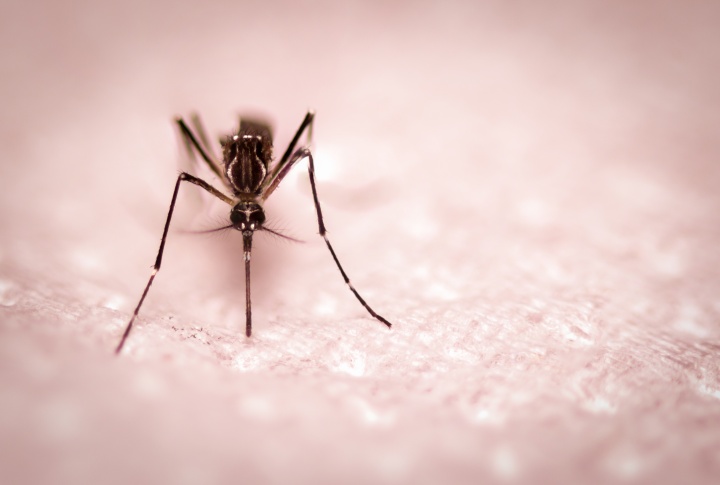An interesting article from http://www.ucg.org/ about Zika. This follows this post about Australia’s neighbors. For a free magazine subscription or to get the books recommended for free click HERE! or call 1-888-886- 8632.
 Isarapic/iStock/Thinkstock
Isarapic/iStock/Thinkstock
What prompted the Zika virus outbreak this past year is unknown.
“As many as four million people could be infected by the end of
the year” (Donald McNeil Jr., Catherine Saint Louis and Nicholas St.
Fleur, “Short Answers to Hard Questions About Zika Virus,” The New York Times, Feb. 3, 2016).
Meanwhile, the U.S. Centers for Disease Control and Prevention announced that its Emergency Operations Center had been activated to Level 1, meaning its staff will be working around the clock in emergency conditions.
Discovered in the Zika forest of Uganda in 1947, the virus is common in Africa and Asia. It didn’t begin spreading in the Western Hemisphere until May 2015, with an outbreak occurring in Brazil. It’s had a notable impact throughout Latin America and the Caribbean. As of this writing, only a few cases have been reported in the United States and now Europe.
For most, the infection causes no symptoms and does no lasting harm. However, “concern is focused on women who become infected while pregnant and those who develop a temporary form of paralysis after exposure to the Zika virus” (ibid.).
In October 2015, doctors in northern Brazil noted a surge in babies with microcephaly—a birth defect of abnormally small heads and underdeveloped brains. There can be various causes for this problem, including other infections such as German measles (or rubella) and cytomegalovirus. A causal link to the Zika virus in the recent cases is not certain, but there is significant evidence of a direct connection (Katie Worth, “New Link Between Zika Virus and Microcephaly Is Found in Brazil,” PBS.org, Feb. 4, 2016). Many nations in South America are advising citizens to hold off on pregnancy until as late as 2018.
There’s a recent case in Dallas, Texas, of the virus being transmitted sexually from someone who’d recently returned from Venezuela, but this is considered to be a very rare occurrence—with only two documented cases linking the virus to sex before this, in 2008 and 2013.
What prompted the outbreak this past year is unknown. One speculation is that it may have been a traveler from Africa or Asia to the 2014 World Cup in Brazil. But it could have been anyone—wrong place, wrong time.
It’s assumed that the United States might have outbreaks in the southeastern part of the country, but that the chance of it being major is low—“because most people in the US hang out indoors in the air conditioning, install window screens, use bug repellent, and keep their yards free of standing water” (Beth Skwarecki, “Your Non-Alarmist Guide to the Zika Virus,” Lifehacker.com, Feb. 2, 2016).
Certainly this virus is a serious problem. But it may prove no worse than many other health issues the world is dealing with. Yet it should be remembered that Jesus warned of increasing disease epidemics before His return (Matthew 24:3-8). Any major outbreaks should serve as a wakeup call to that reality.
In any case, for this and any other health crisis, we should be seeking the true Healer. In Him alone is true security and well-being. (Sources: The New York Times, Yahoo News, PBS.org, Lifehacker.com.)
Meanwhile, the U.S. Centers for Disease Control and Prevention announced that its Emergency Operations Center had been activated to Level 1, meaning its staff will be working around the clock in emergency conditions.
Discovered in the Zika forest of Uganda in 1947, the virus is common in Africa and Asia. It didn’t begin spreading in the Western Hemisphere until May 2015, with an outbreak occurring in Brazil. It’s had a notable impact throughout Latin America and the Caribbean. As of this writing, only a few cases have been reported in the United States and now Europe.
For most, the infection causes no symptoms and does no lasting harm. However, “concern is focused on women who become infected while pregnant and those who develop a temporary form of paralysis after exposure to the Zika virus” (ibid.).
In October 2015, doctors in northern Brazil noted a surge in babies with microcephaly—a birth defect of abnormally small heads and underdeveloped brains. There can be various causes for this problem, including other infections such as German measles (or rubella) and cytomegalovirus. A causal link to the Zika virus in the recent cases is not certain, but there is significant evidence of a direct connection (Katie Worth, “New Link Between Zika Virus and Microcephaly Is Found in Brazil,” PBS.org, Feb. 4, 2016). Many nations in South America are advising citizens to hold off on pregnancy until as late as 2018.
There’s a recent case in Dallas, Texas, of the virus being transmitted sexually from someone who’d recently returned from Venezuela, but this is considered to be a very rare occurrence—with only two documented cases linking the virus to sex before this, in 2008 and 2013.
What prompted the outbreak this past year is unknown. One speculation is that it may have been a traveler from Africa or Asia to the 2014 World Cup in Brazil. But it could have been anyone—wrong place, wrong time.
It’s assumed that the United States might have outbreaks in the southeastern part of the country, but that the chance of it being major is low—“because most people in the US hang out indoors in the air conditioning, install window screens, use bug repellent, and keep their yards free of standing water” (Beth Skwarecki, “Your Non-Alarmist Guide to the Zika Virus,” Lifehacker.com, Feb. 2, 2016).
Certainly this virus is a serious problem. But it may prove no worse than many other health issues the world is dealing with. Yet it should be remembered that Jesus warned of increasing disease epidemics before His return (Matthew 24:3-8). Any major outbreaks should serve as a wakeup call to that reality.
In any case, for this and any other health crisis, we should be seeking the true Healer. In Him alone is true security and well-being. (Sources: The New York Times, Yahoo News, PBS.org, Lifehacker.com.)






No comments:
Post a Comment